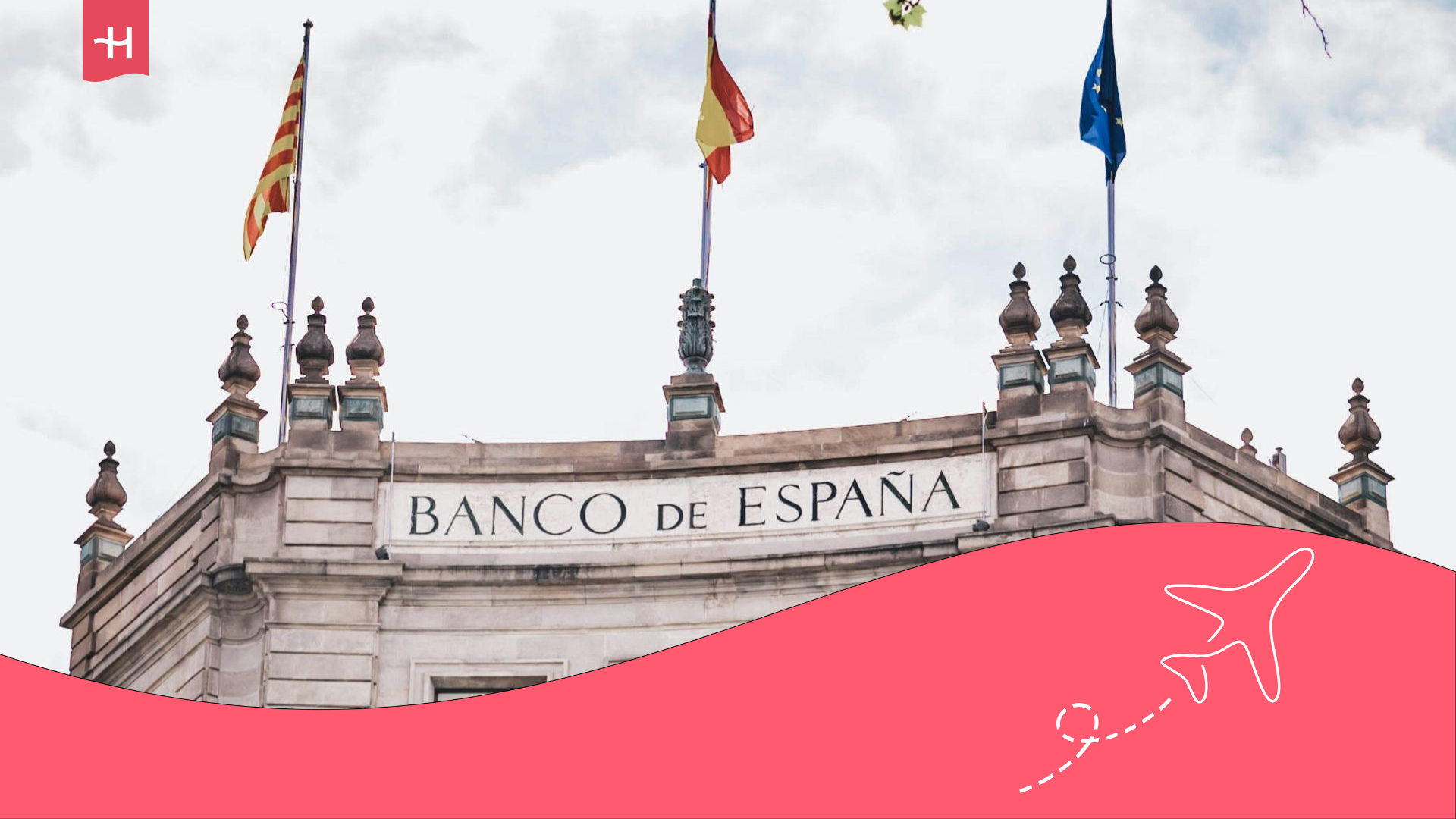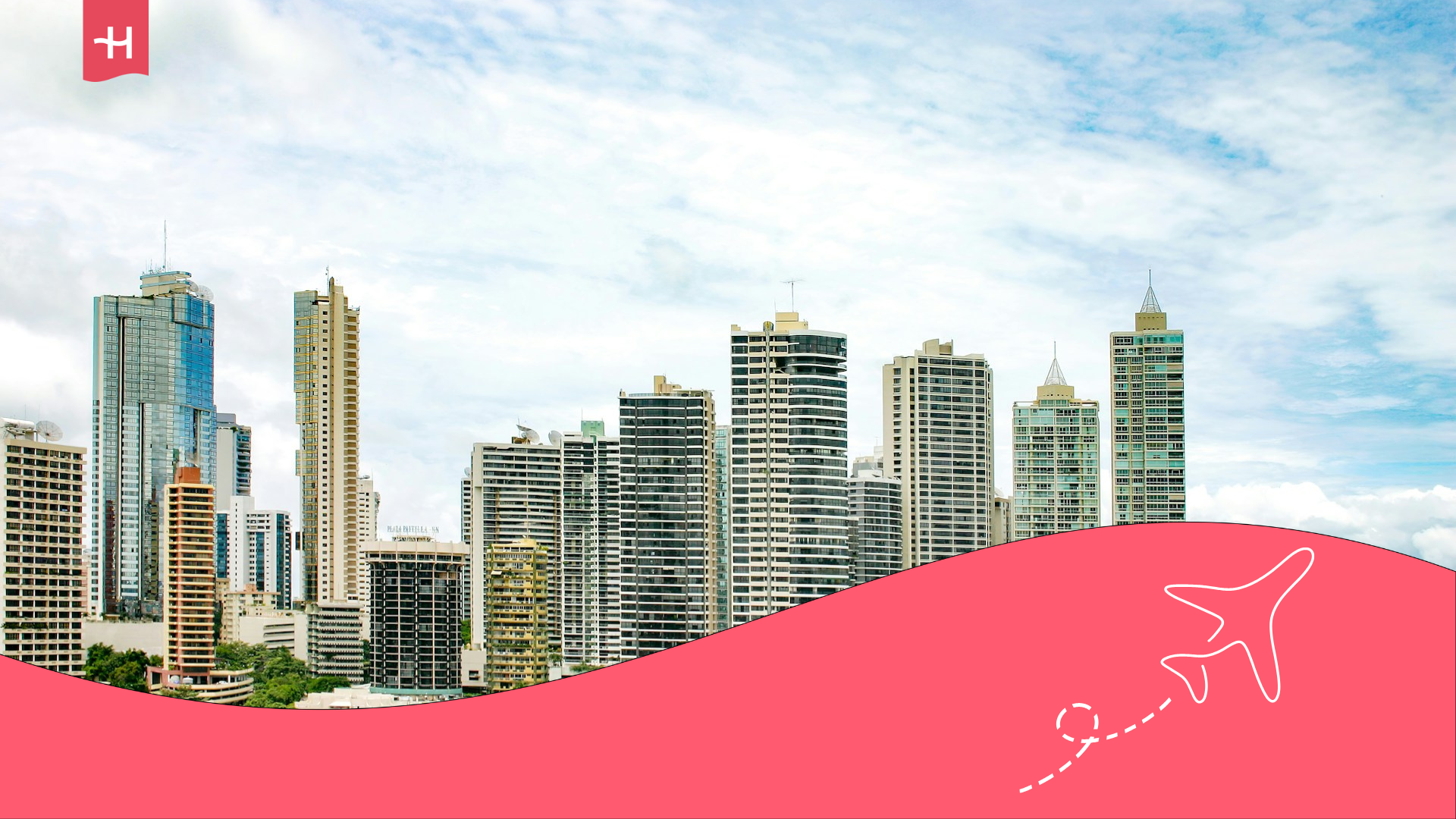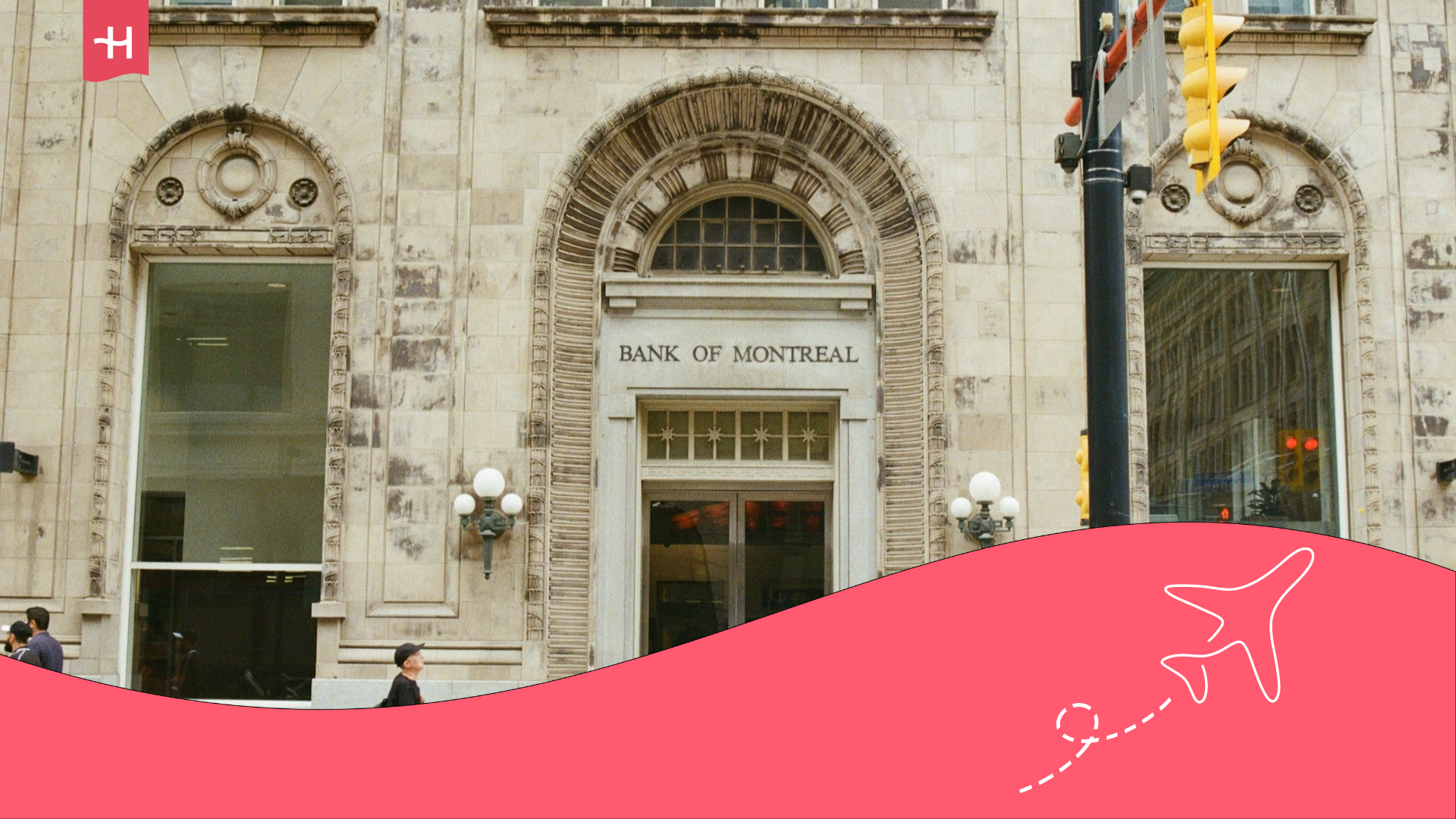Cost of living in Toronto: Food, transport, and more
Discover how high the cost of living in Toronto is and plan your stay in one of Canada’s most amazing cities.
Toronto isn’t only the largest city in Canada: It’s also one of its main financial, cultural and educational hubs. Living in this modern, multicultural metropolis can be an amazing experience, yet it also requires solid financial planning. In other words, knowing the cost of living in Toronto is essential before you pack your bags.
If you’re considering moving for work, study or simply to try a new life abroad, this guide helps you anticipate expenses and organise a realistic budget. Do you want to know the rent for a downtown flat? How much money you’ll need for food each month? Whether private health insurance is worth it? Keep reading and find all the answers in one place.
Staying in Toronto: How much is monthly rent?
Toronto is a dynamic city with very high housing demand, directly impacting rental prices. The offer is broad, yet also highly competitive, especially in central areas like Downtown, Yorkville or The Annex. Still, with patience, you can find well-located, safe options with utilities included, particularly for medium or long-term stays.
Your choice of accommodation type strongly affects Toronto’s cost of living. From furnished apartments to student residences, including Airbnb or coliving, each option has unique advantages depending on your lifestyle. Below, you’ll find average prices and what you can expect from each choice.
1- Furnished apartments in Toronto: A convenient but costly choice
Renting a furnished apartment in Toronto is one of the most practical choices if you want privacy, comfort and a longer stay. They’re ideal for professionals, students or young couples settling in the city. They usually come with a full kitchen, appliances, bedding, internet and sometimes utilities like electricity, heating or water included. Therefore, you won’t need to worry about anything else but arriving and enjoying Toronto.
The most popular areas for this type of rental are Downtown Toronto, Midtown, Liberty Village and places near TTC stations (the public transport network). Still, the cost isn’t low. Here are some average values to use as reference:
| Kind of apartment | Monthly price in USD | Monthly price in € |
|---|---|---|
| Studio or one bedroom | $2,300 | €2,120 |
| Two bedrooms | $3,300 | €3,040 |
| Three bedrooms | $4,400 | €4,050 |
Cost of coliving in Toronto
These values may increase if the building offers amenities such as a gym, swimming pool, 24-hour security or co-working spaces. On the other hand, if you are willing to move a little further away from the centre, you will find prices 20% lower in neighbourhoods such as Scarborough, Etobicoke or North York.
2- Airbnb in Toronto: Perfect for flexible stays, but costs vary
If you plan to stay a few weeks or a couple of months in Toronto, Airbnb can be very convenient. Unlike furnished flats that usually need longer contracts, Airbnb rentals allow more flexibility in dates and conditions. This is especially attractive for digital nomads, short-course students or people seeking temporary housing.
Airbnb options in Toronto are abundant in central districts like Queen Street West, Kensington Market, The Annex and the Entertainment District. You’ll also find many choices in residential areas like Leslieville or Roncesvalles, which combine peace with good connections.
Regarding services, most rentals include WiFi, equipped kitchen, laundry and central heating. Some flats also offer a work desk, balcony views and access to building amenities. However, not all hosts provide regular cleaning or discounts for long stays.
For a stay of one to three months, you should budget approximately:
| Type of Housing | Monthly price in USD | Monthly price in € |
|---|---|---|
| Studio / bedsit | $2,800 | €2,580 |
| One bedroom | $3,200 | €2,950 |
| Two bedrooms | $4,100 | €3,780 |
Cost of living in Toronto: Renting via Airbnb
Generally, Airbnb tends to be 20–30% more expensive than furnished flats. Still, it compensates with flexibility, simple processes and move-in-ready spaces. Some hosts even provide special rates if you book for over 28 days.
3- Coliving in Toronto: Community, practicality and all-inclusive
Coliving has become a top choice for digital nomads and remote workers. This model combines private accommodation (usually a furnished room) with shared spaces like kitchen, work areas, laundry or even gyms. Yet, its true highlight is community: Living with people who share your interests makes settling in a new city easier and socially enriching.
In Toronto, coliving options are growing in neighbourhoods with good connections to the centre, such as Cabbagetown, Riverdale, Little Italy, Bloor West Village and Parkdale. Premium alternatives also exist near Downtown, though at higher prices. Some coliving spaces include services like weekly cleaning, community events, 24/7 support and coworking areas within the same building.
Spaces often have a modern design, with natural light, soundproofing and functional furniture. For many, it’s the ideal way to avoid separate bills, long contracts or complex paperwork. As for costs, here are some reference values:
| Type of room | Monthly price in USD | Monthly price in € |
|---|---|---|
| Single room with shared bathroom | $1,400 | €1,290 |
| Room with private bathroom | $1,750 | €1,610 |
| Private studio within coliving | $2,300 | €2,120 |
Cost of coliving in Toronto
Coliving offers an all-in-one solution, ideal for people who prioritise social life, want to avoid yearly contracts or are new in Toronto and need a quick, safe choice.
4- Student residences in Toronto: Location, safety and campus life
If you’re planning to study in Toronto, living in a student residence is one of the most practical ways to start. These residences help students adapt easily, offering furnished rooms, utilities included and great locations within or near campus. They’re perfect for those wanting an active student life, comfort and proximity to classes.
Toronto hosts several universities and colleges with their own residences, including University of Toronto, Toronto Metropolitan University (formerly Ryerson) and George Brown College. Private residences also exist, offering places for both local and international students, sometimes with more modern facilities and greater comfort.
Rooms may be private or shared, and common services include high-speed internet, heating, air conditioning, 24/7 security, common areas, study rooms, shared kitchens and laundry facilities.
| Type of room | Monthly price in USD | Monthly price in € |
|---|---|---|
| Shared twin room | $950 | €875 |
| Single room with shared bathroom | $1,200 | €1,105 |
| Single room with private bathroom | $1,500 | €1,380 |
Cost of living in Toronto: Staying in a student residence
Most residences run on semester cycles, with four to eight-month contracts. This makes it easier to plan according to academic terms.
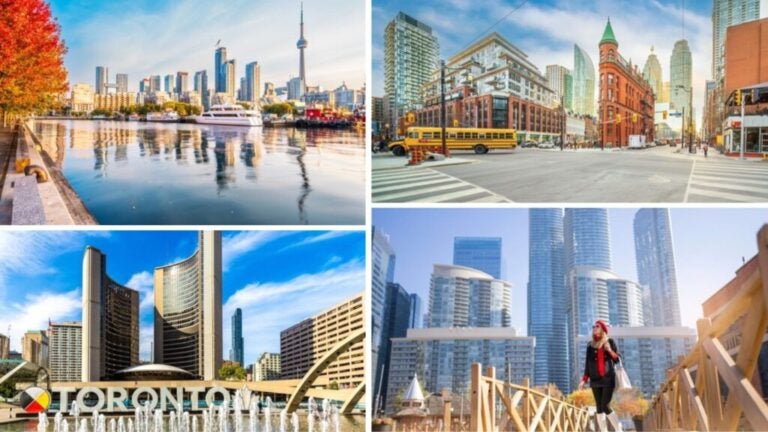
Cost of living in Toronto: Food prices
Eating in Toronto can be as affordable or as expensive as you decide. The city offers a wide range: From supermarkets with fresh, good-quality products to restaurants reflecting the city’s cultural diversity, with dishes from every corner of the world.
For groceries, chains like No Frills, Metro, Loblaws and FreshCo are the most popular among residents. Prices may vary by neighbourhood, but overall, basic food items are reasonably priced if you cook at home.
| Product | Price in USD | Price in € |
|---|---|---|
| 1 litre of milk | $1.90 | €1.75 |
| Dozen eggs: | $3.60 | €3.30 |
| 1 kg chicken breast | $10.80 | €9.95 |
| 1 kg of beef | $14.00 | €12.90 |
| 1 pack of pasta (500 g) | $2.00 | €1.85 |
| 1 loaf of bread | $2.70 | €2.50 |
| 1 kg potatoes | $3.20 | €2.95 |
| 250 g ground coffee | $5.50 | €5.05 |
Cost of living in Toronto: Food prices
When it comes to eating out, Toronto is packed with cafés, ethnic restaurants, food trucks and healthy choices. Prices are higher than in other Canadian cities, yet you can still find affordable menus if you choose carefully. Here are some examples for reference:
- Simple breakfast (coffee + pastry) in a local café: €7.35 ($8)
- Full lunch in a budget restaurant: €13.80 ($15)
- Dinner in a mid-range restaurant (no alcohol): €23.00 ($25)
Cooking at home remains the most cost-effective choice, especially when combining supermarket shopping with fresh produce from local markets or ethnic shops. Moreover, many digital nomads and students share kitchens with flatmates to save even more.

Transport in Toronto: Prices, passes and ways to get around
Getting around Toronto is easy and efficient, thanks to a modern, well-connected public transport network. It includes subway, trams and buses operated by the TTC (Toronto Transit Commission). In addition, regional GO Transit trains and Uber are available. Toronto is also a very bicycle-friendly city, especially in spring and summer. There are marked bike lanes and a public rental system with stations throughout the city.
Public transport is the main option for residents and long-term visitors. It works with a PRESTO card, which integrates fares and allows easy top-ups via an app or station machines.
| Service | Price in USD | Price in € |
|---|---|---|
| Single TTC ticket (adult) | $2.70 | €2.50 |
| Monthly TTC pass | $122.50 | €112.00 |
| GO Transit train (medium route) | $7 – 10 | €6.40 – 9.20 |
| Public bike rental (1 day) | $7 | €6.40 |
| Monthly Bike Share Toronto pass | $25 | €23.00 |
| Average Uber ride (urban trip) | $15 – 22 | €13.80 – 20.20 |
| Price of 1 litre petrol | $1.55 | €1.40 |
| Price per kWh (EV) | $0.16 | €0.15 |
Cost of living in Toronto: Transport prices
Regarding insurance, those planning to drive must consider that car insurance in Ontario is mandatory. It may cost between $1,200 and $2,200 yearly, depending on the driver’s profile.
Cost of living in Toronto: Are healthcare services expensive?
Canada’s healthcare system is globally recognised for quality and coverage. However, in Ontario, public healthcare access is limited to permanent residents or temporary residents with work or study permits. Therefore, if you’re a foreigner staying in Toronto, the best choice is to purchase private international or local health insurance.
Private clinics are well distributed across the city and provide quick, efficient care. You’ll also find top-level hospitals like Toronto General Hospital, which handle emergencies, though with high fees if you’re not covered.
| Service | Price in USD | Price in € |
|---|---|---|
| General medical consultation (without insurance): | $90 – 150 | €82 – 137 |
| Routine dental check-up | $100 – 200 | €91 – 183 |
| Private health insurance (monthly) | $65 – 150 | €60 – 137 |
| Over-the-counter medicine (painkillers, syrup) | $5 – 15 | €4.60 – 13.70 |
| Emergency hospitalisation (no insurance) | $1,000 – 3,000 per day | €910 – 2,740 |
Cost of healthcare services in Toronto
If your stay in Toronto is long-term, it’s advisable to get insurance covering hospitalisation, outpatient care and pharmacy costs. Some universities and education agencies also offer comprehensive plans for international students.
Internet in Toronto: Prices for fixed, mobile and digital nomad options
Staying connected in Toronto won’t be a problem. The city has advanced tech infrastructure and stable coverage, both fixed and mobile. However, compared to other countries, internet in Canada can be expensive, especially if you need lots of data or high speed. That’s why it’s important to review your options before signing up.
Fixed internet in Toronto
Main providers (like Rogers, Bell and TekSavvy) offer fibre or cable broadband. Most medium and long-term rentals already include internet service, though not always with the fastest speeds.
Average monthly price:
- Basic plan (up to 100 Mbps): $55 – 75 / €50 – 69
- Mid plan (300–500 Mbps): $80 – 110 / €73 – 101
- Unlimited high-speed plan (1 Gbps+): $120 – 160 / €110 – 146
Mobile plans
In Canada, mobile data comes in limited packages at high prices. Major providers (Telus, Rogers, Bell) offer plans with unlimited calls and data bundles from 2 GB to 50 GB. Unlimited data is available only in reduced versions, with speed slowed after a certain threshold.
Average monthly price:
- 5 GB plan + unlimited calls: $35 – 45 / €32 – 41
- 20 GB plan + calls and SMS: $50 – 70 / €46 – 64
- Unlimited plan (speed reduction applies): $75 –$95 / €69 – 87
Alternative for travellers: Holafly Plans
For those visiting Toronto for weeks or a few months, an excellent alternative is Holafly’s monthly plans. They provide unlimited mobile data in over 160 countries, including Canada. No physical SIM is required, since it works with eSIM, and you can activate it before travelling. It’s an ideal option for digital nomads, students or tourists wanting reliable connectivity without extra bills or complications.
Important: If you are a frequent traveler and want to stay connected without worrying about expensive roaming or looking for a new SIM at every destination, Holafly’s subscription plans are for you. With a single eSIM, enjoy internet in more than 160 countries for a fixed price and no surprises on your bill. Travel without limits and connect easily and securely! 🚀🌍

Entertainment in Toronto: Prices and attractions for every taste
Toronto is vibrant, multicultural and full of diverse entertainment options. From renowned museums to sports events, nightlife, urban parks and outdoor festivals, there’s something for every profile. While many activities require tickets, a good number of free options also exist for those who want fun without overspending.
Free activities in Toronto
There are countless ways to enjoy Toronto without spending a dollar. Some of the most popular are:
- Walking through High Park or Toronto Islands
- Exploring Graffiti Alley or the Distillery District
- Visiting St. Lawrence Market
- Attending free outdoor concerts or films in summer
- Visiting the Art Gallery of Ontario on Wednesday evenings (free entry)
Free festivals also run year-round, such as Toronto Jazz Festival, Nuit Blanche and Toronto International Buskerfest.
Must-visit paid attractions
If you’re ready to invest in experiences, Toronto has unique activities. Here are some of the most popular tourist attractions with estimated 2025 prices:
| Attraction | Price in USD | Price in € |
|---|---|---|
| CN Tower (general entry) | $27 – 38 | €25 – 35 |
| Royal Ontario Museum | $18 – 25 | €17 – 23 |
| Ripley’s Aquarium of Canada | $30 – 39 | €28 – 36 |
| Casa Loma | $20 – 30 | €18 – 28 |
| Ontario Science Centre | $14 – 22 | €13 – 20 |
| Toronto Zoo | $22 – 30 | €20 – 28 |
| Hockey Hall of Fame | $16 – 25 | €15 – 23 |
| Harbourfront Centre (activities) | Varies by event | Varies |
| AGO + ROM combo ticket | $35 – 45 | €32 – 41 |
| Toronto Raptors or Blue Jays (average ticket) | $40 – 80 | €37 – 74 |
Cost of tourist activities in Toronto
Conclusion: Is Toronto’s cost of living high?
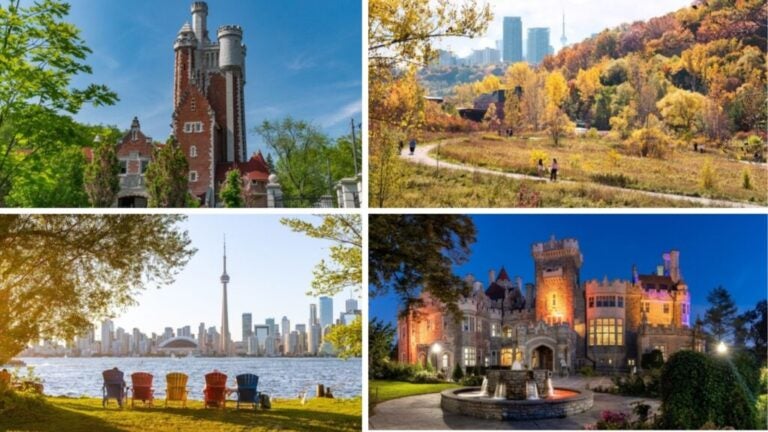
Living in Toronto isn’t exactly cheap, yet what the city offers in return can justify the financial effort. It combines top-level services, safety, multiculturalism and an impressive educational, job and leisure offer. While housing and food represent the biggest monthly challenges, there are ways to save, especially with transport, free activities and shared options like coliving.
Whether you’re moving as a digital nomad, student or professional, Toronto can be an excellent choice if you’re seeking quality of life in a global city. Planning ahead, comparing prices and considering your lifestyle are key to making the experience positive and financially sustainable.





 Language
Language 


















 No results found
No results found




